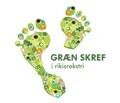Írar líta til Barnahúss í kjölfar klúðurs við rannsókn kynferðisbrotamáls
Viðtal við Braga Guðbrandsson forstjóra Barnaverndarstofu í The Irish Times eftir erindi hans á ráðstefnunni "World Congress on Family Law and Children's Rights" í Dublin. Á ráðstefnunni voru 150 fyrirlesarar og meira en 600 þátttakendur frá 53 löndum.
Multiple interviewing in child abuse cases can ‘re-traumatise' victims
Conference hears of Icelandic model where one interview is used for multiple purposes
Tue, Jun 6, 2017, 21:07
Bragi Gudbrandsson, the director general of the agency for child protection in Iceland. Repeatedly interviewing children who have been sexually abused “destroys cases” and “re-traumatises” the victims, a conference on family law and children's rights has been told. Bragi Gudbrandsson, the director general of the agency for child protection in Iceland, advocated for a model developed there, known as Barnahus, or the Children's House, where children are interviewed normally only once by one person, and the interview is used for multiple purposes. His presentation follows a report, from the Child Care Law Reporting Project, on a case involving a child who was allegedly sexually abused and who was interviewed 11 times, by gardaí and, separately, by a therapy unit. None of the alleged perpetrators are to be prosecuted.
Mr Gudbrandsson was attending the World Congress on Family Law and Children's Rights in Dublin. The congress featured 150 speakers and more than 600 delegates from 53 countries.
Speaking to The Irish Times, he
said with multiple interviews, a child's disclosure becomes contaminated.
Commenting on the Irish case with 11 interviews, he said “these types of
practices are very likely and very prone to destroy the whole case”.
“You have no way of knowing what really
has happened,” he said. He also said when children need to go
from one office to the next and re-live a very difficult experience, this
results in re-traumatisation or re-victimisation. In the Barnahus model, a child is
interviewed by a highly skilled specialist interviewer and the interview is
watched live by a judge in an adjacent room, along with police, a legal
advocate for the child, and defence advocates. The interview, carried out in a
child-friendly environment, normally takes no longer than one hour and the
judge can allow questions to be put to the child. The recording of the
interview can also be used to ascertain therapeutic needs and the centre also
includes a medical examination room.
Child's
disclosure
Over half of interviews are carried out
within a week of police being informed of a child's disclosure, Mr Gudbrandsson
said. The model has since been adopted in
Sweden, Norway, and Denmark, though they do not include a judge at interview
stage. “If Ireland wants to take this up, you
do not have to have court judges there,” he said. Presenting at a session on divorce
settlements, Dr Louise Crowley, from University College Cork, took the breath
away of many international delegates by explaining Irish divorce law. There were gasps when she told those
present that the role of woman as homemaker was still enshrined in the
Constitution.
Dr Crowley discussed the lack of a “clean break”, in financial terms, in Irish divorces and said we should reconsider it. She also said we need to protect “second families”. “It is not unreasonable to expect both parties to step up after marriage breakdown and realise that there is no longer a marital union, so therefore you can't justify ongoing financial dependency,” she said. Professor Jane Mair, of the University of Glasgow, in Scotland, gave an overview of divorce settlements in Scotland and described the legislation underpinning them as “a gem”. She said what they do in Scotland is the “exact opposite” to Ireland's law. The legislation allows for a “clean break” and is focused on the “fair sharing of matrimonial property”. There is “a strong settlement culture”, Prof Muir said, and “very limited litigation”.
Chairing the session, Family High Court judge, Mr Justice Henry Abbott, remarked he was jealous of the Scottish system. He also told delegates there was a “second bite” system in Ireland, with separation and then divorce. “The system may well change in the future, I think it should,” he said.
Hér má finna fréttina um málið sem vitnað er í
http://www.irishtimes.com/news/crime-and-law/courts/district-court/seven-men-who-allegedly-abused-child-will-not-face-prosecution-1.3102125






